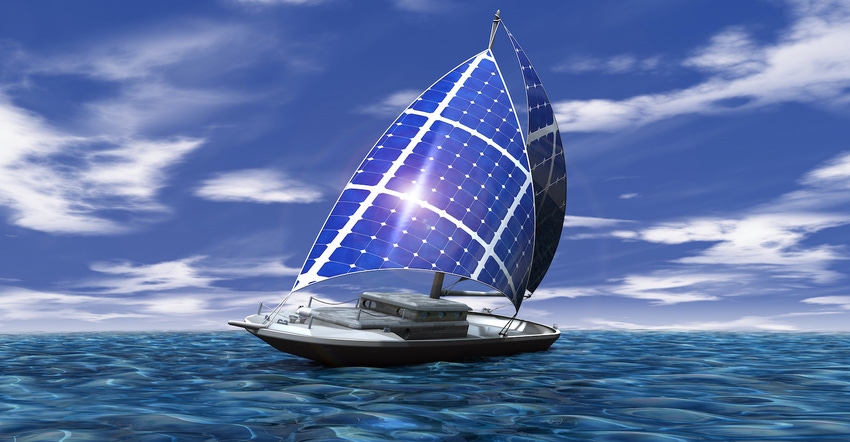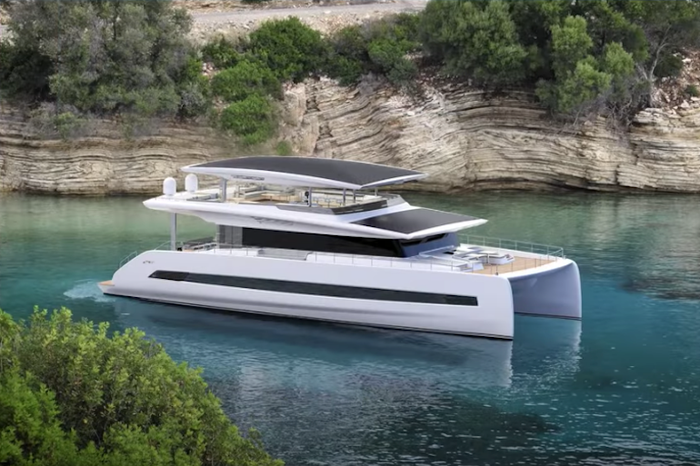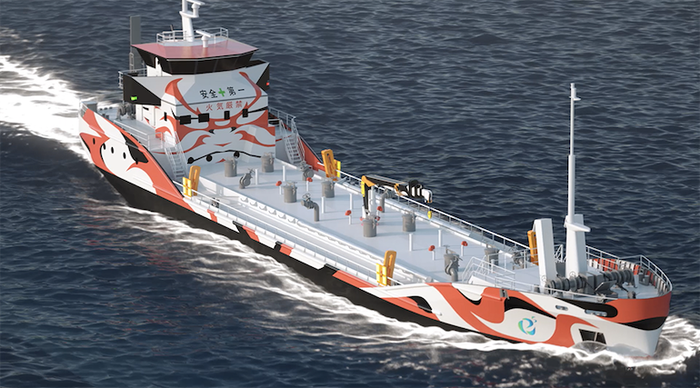Will Solar Panels and Electric Yachts and Tankers Rule the Waves?
Electric yachts and tankers face similar but different issues from ground-based electric vehicles.
April 6, 2021

It seems like solar energy is powering more and more non-conventional vehicles like electric yachts. Consider the latest transportation vehicle to claim its move to solar energy, namely, the watercraft and tanker industries.
Recently, Silent Yachts announced it has sold 3, 80-Foot, tri-deck solar-powered catamarans. This is a newsworthy trend as it highlights the move from merely using solar panels to power lights and devices in the ship’s galley to actually propelling the vehicle on the water. The last few years have seen the emergence of boats in which solar energy is the main source of power – but not the only one.
|
Silent-80-Solar-Powered-Catamaran. (Image Source: Silent Yachts, Youtube) |
The Silent Yachts catamaran is a prime example. The craft is decorated with recyclable materials that are stylish yet sustainable, according to the website. It's also equipped with 70 solar panels on the roof of the ship that generate 26kWp of power. The solar energy is then stored in lithium batteries to power the onboard amenities and enable the vessel to cruise at night.
To complement the solar energy, the catamaran is fitted with a pair of electric engines that offer up to 340 kW each and give the vessel a maximum speed of 20 knots and a range of up to 100 miles per day. Such performance means users can sail silently sans emissions and without consuming gas or diesel fuel. However, there is a gas/diesel generator backup if needed.
As with their automotive counterparts, the solar-powered electric yachts are incredibly quiet, so much so that passengers can hear dolphins swimming by.
The ship manufacturer is also partnering with automotive giant Volkswagen to install the same electric powertrains currently used in VW's ID.3 and ID.4 in an array of ocean-going multihulls. So, will solar replace fossil-fuels and even sails in the near future?
“The key thing is the solar alone is not enough to power the craft, simply because the energy density isn’t there,” explained Peter Kelly-Detwiler, Principal at NorthBridge Energy Partners, LLC. “You can use the solar to power a battery, but the battery may well need to be augmented with electricity from other sources. It’s really about coverage, i.e., how big is your solar array, plus the strength and duration of sunlight and how much energy you need to propel the craft through the water for a given period. In that sense, it’s not unlike an electric vehicle.”
Electric Engines on the High Seas
Luxury yachts are not the only vehicles turning to solar panels and electric motors. Corvus Energy was recently awarded to provide an energy storage system (ESS) battery to the Kawasaki Heavy Industries zero-emission tanker project. Kawasaki selected the Corvus Orca ESS for its battery-powered propulsion system onboard the all-electric Asahi Tanker vessel.
The battery-powered vessel was designed by e5 Lab Inc., which is a consortium of leading Japanese shipping and maritime services companies, including Asahi Tanker Co., Ltd. The tanker company is set up to build infrastructure services focused on electrically powered vessels. The vessel for the Asahi Tanker is the first of two all-electric vessels to be built from the e5 Lab initiative. It is expected to go into service in bunkering operations in Tokyo Bay by 2022. The ships will be built by KOA Industry Co., Ltd. and Imura Shipyard Co., Ltd. in Japan.
Last year, Kawasaki Heavy Industries was awarded the contract for the ship’s propulsion system. It will integrate the 3,480 kWh Orca ESS from Corvus Energy to power the vessel.
The Tokyo-based shipping consortium, known as e5 Lab Inc., has begun the development of Roboship, the standard models of electrically powered vessels to realize zero emissions. Together with an integrated system called the Roboship Box, the effort will bring together telecommunication systems, the Internet of Things (IoT), and customized software applications.
Through this initiative, e5 Lab is working to address critical issues facing Japan’s ocean shipping and maritime industries, including a shortage of seafarers, environmental concerns, safety, and the sustainable growth of the shipbuilding/ship machinery sectors. With strategic partners in Japan and overseas, the development project team targets the commercialization of electric-powered merchant vessels that adopt propulsion systems at competitive prices in the global market.
|
Kawasaki Heavy Industries selects Corvus Orca ESS for battery-powered propulsion system onboard all-electric Asahi Tanker vessel. (Image Source: Corvus Energy, Press Release) |
John Blyler is a Design News senior editor, covering the electronics and advanced manufacturing spaces. With a BS in Engineering Physics and an MS in Electrical Engineering, he has years of hardware-software-network systems experience as an editor and engineer within the advanced manufacturing, IoT and semiconductor industries. John has co-authored books related to system engineering and electronics for IEEE, Wiley, and Elsevier.
About the Author(s)
You May Also Like







